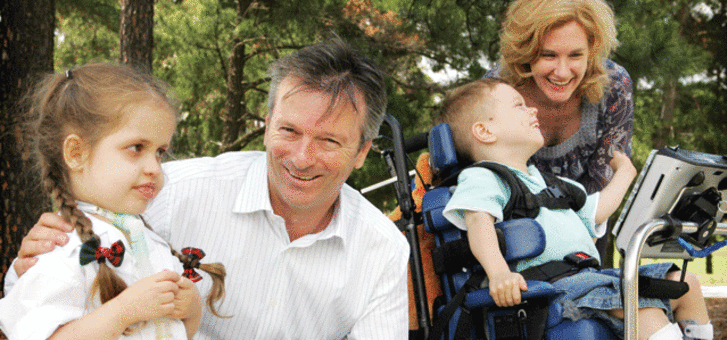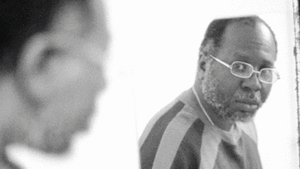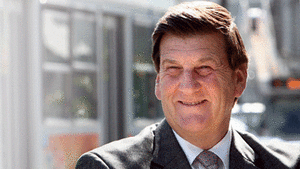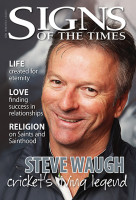Former Australian cricket captain Steve Waugh is a rare person. After all, it’s not every day that someone can get the Prime Minister to launch his book. But in 2005, a year after retiring from professional cricket (to a great deal of fanfare), Waugh got then Australian Prime Minister John Howard to launch his autobiography, Out of My Comfort Zone. In the same year, Waugh was named Father of the Year, adding to his Australian of the Year honour received the year before.
On top of that, Waugh is one of the few cricketers considered to be “the best since Donald Bradman” and he can also claim to be one of the most experienced test cricketers in history. The accolades don’t stop there however. Waugh was named Australia’s National Living Treasure in 2006 by the National Trust of Australia, and then named captain of a best-ever Australian limited-overs side the next year. He also became the 30th cricketer inducted into the Australian Cricket Hall of Fame in 2009 and is one of only three Australians to have been invited to join the prestigious Laureus World Sport Academy and only the fourth cricketer to be so honoured.
Waugh however is not just a fine sportsman, he is also a man using his significant profile to aid forgotten kids.
During a visit to India in 1986, Waugh was struck by those suffering from leprosy and their families, and was prompted to get involved. Since the beginning of the century, Waugh has been actively assisting these families through his support of the Udayan Home in Barrackpore, India. The home takes children out of their leprosy environment and provides them with education, healthcare and opportunities in life.
Closer to home, Waugh supports disadvantaged youth through the Steve Waugh Foundation, which helps improve the quality of life of children affected by rare diseases through research, treatment and support.
At just 45 years of age, the titles and honours he’s been given are impressive but it’s not something Waugh bases his life upon. “They’re nice titles to have, but I think you’ve got to go forward in life and not behind,” he reflects. “But I’ve been lucky with what I’ve achieved and what I’ve experienced, there’s no doubt about that.”
comeback kid
It hasn’t always been easy professionally for Waugh, born in Campsie in Sydney, New South Wales, as one of twin boys (his brother Mark is also a highly regarded cricketer and received an Order of Australia in 2005 for his services to the sport.) But Waugh takes a pragmatic approach to the tough times, which he believes built his character, made him tough and turned him into what he ultimately became in the end.
“The early Test years, the first three or four years, were difficult,” he recalls. “I didn’t win a Test match till my 13th Test match and I never scored 100 till my 26th Test match, so there were a lot of early struggles. And of course I got dropped from the Test side. I think every cricketer looks back and there are certainly moments there that make you suffer.” However, motivated by the desire to be the best he could possibly be and to make the most of his potential and not to let himself down, Waugh was recalled to the Test team.
“It really was about training hard and working hard and also enjoying what you’re doing. That’s important when you play professional sport—you don’t want to lose sight of the fact that you actually love playing the game.
“Like everyone, there are personal issues to face [during those difficult years], definitely. But as a professional sportsman, you’ve got to learn to compartmentalise. If you’ve got problems off the field, wherever they may be—in business, family or whatever—once you get on the field, once you cross that line, you’ve got to be totally focused on what you’re doing.
“It’s a learned skill. It doesn’t just happen overnight. You learn how to put things in different boxes and to deal with things in front of you, and then go back to others when you need to.”
philanthropic commitment
When Waugh was named Australian of the Year in 2004, he was recognised not just for his contribution to sport, but also for what he’s done for humanitarian causes and charity. Following retirement, Waugh established the Steve Waugh Foundation, aimed at Australian children who have a disease, an illness or an affliction that does not meet the set criteria of other charitable organisations.
In 2009, he extended his philanthropic activity and launched Steve Waugh Foundation Global and Steve Waugh Foundation India.
“When I retired from cricket, I wanted to make a difference in Australia. I obviously had the profile and the contacts, and that was a big start,” he says.
“To find the cause was the thing that took me a little while; the process of going through exactly what I wanted to do and the type of kids that I wanted to support. It basically came down to the fact that I wanted to support the kids who had no-one else to support them; the ones who were falling between the cracks.”
Waugh uses the term “somewhere to turn” in his fundraising efforts, capturing his philosophical reasons for establishing a foundation and honours his feelings about what he wants to achieve.
“There are a lot of cases out there where people have serious illnesses, diseases or afflictions that don’t meet the criteria of other set charities. There are many parents really struggling to come to grips with what their kids have. They have no money and they can’t get any support, so we deal directly with hospitals. We get referral cases of children who are very sick, who can’t get any financial assistance, and that’s where we step in. We raise money and then either buy these people the equipment or give them financial assistance.”
In India, where Waugh has been working with leprosy victims and their families at the Udayan Orphanage for about 10 years, the cricket-mad Indians frequently mention his name, not only because of his sporting record but also because they appreciate his humanitarian work in the country as well.
According to Waugh, his involvement with the orphanage came about largely by fate. “We lost a Test match in Calcutta back in 1998 in four days and we had a spare day,” he recalls. “I’d received a letter from this lady called Shamlu Dudeja, who was working for the Calcutta Girls’ Foundation, which looked after a number of charities around Calcutta. One of the charities they were linked to was Udayan, which is a rehabilitation centre for children whose parents suffer from leprosy.
“Thirty-seven years ago the Reverend James Stephens had visited a leper colony and offered to take care of two of the boys there and give them shelter, three meals a day, a well-rounded education and a chance at life. By the time I visited back in 1998, he had 250 boys in the centre.”
Waugh ended up visiting a leper colony in Calcutta and saw how horrific life was for those kids, and was also extremely touched by the amazing difference Stephens was making.
“But I also had to ask him, ‘Where’s the wing for the girls?’ They didn’t have one at this stage.”
Having just had his first daughter with wife Lynette, Waugh decided that he could not simply walk away and not give the children the same opportunities that were taken for granted in Australia. And, as Waugh admits, “I took it upon myself to raise funds for a girls’ wing. [And it’s] an ongoing commitment that helps the kids to give them a shot at life.
“You can’t help everyone, but I think what you can do is focus on one or two charities and really try and make a positive difference there. That impacts not only on the kids but the families and the relatives. Every child you help probably affects 10 to 20 people.”
a humble spirit
While extremely familiar with what it’s like to be at the centre of media attention and to a certain extent, a household name, Waugh says he is uncomfortable with the word “celebrity,” calling it an “overrated word.”
“I’ve been fortunate to have been in the limelight, I guess. But I just see myself as being in a position where I can use my profile and contacts to raise money and to make a positive impact in the media and bring awareness to whichever topic I’m associated with. So I obviously have a big advantage over the so-called ‘non-celebrity.’
“But for me it’s about putting in time. It’s not just about giving [some worthy cause a] profile; you’ve got to put time into the project. I think when you do that, then other people buy into what you’re doing and you get the passion of people working for you.
“Meeting Mother Teresa had a big impact on me. The way she gave to the poorest of the poor her whole life without regard to material possessions was a great example of someone who was doing amazing things. I think it’s almost impossible to live that way, so it was incredible what she did.
“But I think it’s more about: if you’re in a privileged position you should be able to help the people who are less fortunate. I don’t think it takes a lot of extra effort to do that, and I think it’s something we all should look to doing if we’re in a position of privilege.
“I think it’s all about giving people opportunities. You can make your decisions when you get those chances in life, but a lot of kids don’t actually get that chance. I think that’s a real shame because their potential isn’t tapped.
“So for me it’s about providing opportunities. That’s the way I see we can make the biggest difference.”
Adapted, with permission, from Open House Volume 2: Sheridan Voysey in Conversation, Strand Publishing, 2009.





